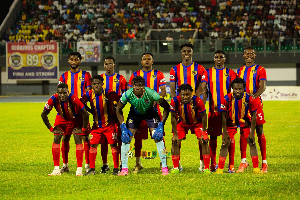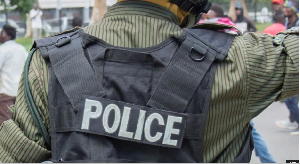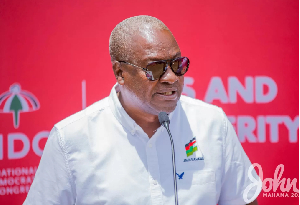In a bold accusation that has stirred the political waters in Ghana, Kwame Awuah-Darko, a prominent banker and influential member of the National Democratic Congress (NDC), has claimed that Vice President Dr. Mahamudu Bawumia, alongside the Bank of Ghana (BoG), has orchestrated a scheme to prevent free zone companies from repatriating their export earnings.
This controversial move, he argues, is a key factor behind the alarming depreciation of the Ghanaian cedi against the dollar.
The Allegations Unfold
Awuah-Darko asserts that the Vice President issued a directive, backed by the BoG, instructing all free zone companies in Ghana to refrain from bringing their export earnings back into the country. “The Vice President wrote a letter and chaired a meeting, telling all free zone companies in Ghana that they should not repatriate their earnings from exports to Ghana,” he stated during an exclusive interview with Kojo Marfo on AbusuaNkommo at ABUSUA965FM.
He expressed concern that this policy not only undermines existing laws—which mandate that 80% of free zone earnings be repatriated but also poses a significant threat to Ghana’s economic stability.
He said, “The existing law requires 80% of free zone companies’ earnings to be repatriated to Ghana. This year alone, the 80% earnings is projected to be an amount of $2.4 billion”.
The Financial Implications
According to Awuah-Darko, the projected amount of export earnings that will remain outside Ghana this year could reach a staggering $2.4 billion. “By suggesting that these funds should stay abroad, the Vice President is effectively saying that Ghana does not need this capital,” he argued.
This stance, he claims, is directly contributing to the current instability in the foreign exchange market, where the dollar is “running like a speedboat” against the cedi.
A Meeting of Concern
Awuah Darko revealed that following a meeting held in March between Dr. Bawumia, the Bank of Ghana and representatives from various free zone companies. At this meeting, it was reported that discussions were held regarding the management of export earnings amid a backdrop of economic distress as the cedi struggled against major currencies.
Awuah-Darko contends that this gathering was pivotal in shaping the Vice President’s controversial directive.
Kwame Awuah-Darko backed his allegations with three main documents from the Office of the Vice President, the Bank of Ghana, and the Ghana Free Zones Authority.
The letter from the Office of the Vice President, dated March 4, 2024, was signed by Augustine Blay, Secretary to the Vice President. Key highlights of the document include:
Free zone companies must apply for LOC exemption status for all free zone companies, effective until further notice.
Free zone companies must apply for LOC exemption status through the ICUMS system, selecting the “Non-Repatriation” option, which automatically confers status to applicants and streamlines the approval process.
The letter from the Bank of Ghana, dated March 20, 2024, was signed by Kennedy Akonnor Adu, Head of the Banking Department. Key highlights of the statement include:
Export Requirements: Free Zone Enterprises (FZEs) seeking to export must generate a Letter of Credit (LOC) from the Integrated Customs and Management System (ICUMS).
Repatriation Option: When generating the LOC, FZEs must select the “NO” option in the field labelled “Would export proceeds be repatriated” to indicate that repatriation of export proceeds is not mandatory.
Again, the letter from the Ghana Free Zones Authority, dated August 8, 2024, was signed by Amb. Michael A.N.N.Y. Oquaye.
Click to view details



Business News of Saturday, 30 November 2024
Source: starrfm.com.gh

















